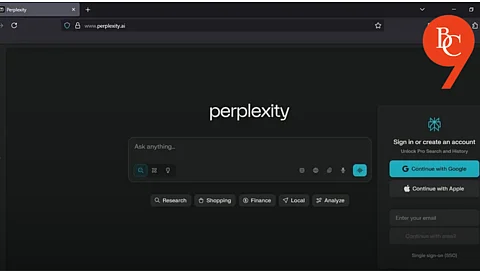

The BBC, the United Kingdom’s flagship public broadcaster, has issued a legal threat against the AI search engine start-up Perplexity, accusing the company of scraping its vast content archives to train artificial intelligence models without authorization. The move marks a significant escalation in the ongoing battle between traditional media organizations and fast-growing AI firms over the use and monetization of journalistic content in the digital age.
According to reports from the Financial Times, the BBC sent a formal letter to Perplexity CEO Aravind Srinivas, demanding that the start-up immediately halt all scraping of BBC content, delete any existing data used to train its AI systems, and propose financial compensation for what the broadcaster describes as the misuse of its intellectual property. The BBC warned that it may seek an injunction if its demands are not met.
The broadcaster’s move is part of a broader crackdown on tech companies that utilize news content to power generative AI tools without licensing agreements. The BBC, which prides itself on editorial integrity and rigorous journalistic standards, argues that unauthorized data extraction undermines the value of its content and the sustainability of public-service journalism.
Perplexity, which has rapidly gained prominence in the AI-powered search space, dismissed the BBC’s claims as “manipulative and opportunistic,” asserting that the broadcaster misunderstands the technology and the legal landscape surrounding internet content and intellectual property. The start-up has previously faced similar accusations from major media outlets including Forbes, Wired, and The New York Times, some of whom have sent cease-and-desist letters or initiated legal proceedings.
Perplexity has launched a revenue-sharing program aimed at addressing publisher concerns, but many media organizations argue that such measures fall short of fairly compensating content creators.
The dispute between the BBC and Perplexity is emblematic of a wider industry debate over how AI companies acquire and use data, the boundaries of fair use, and the need for new legal frameworks in the age of generative AI. Media organizations contend that AI models, which rely heavily on high-quality journalistic content for training, threaten their business models by repackaging and distributing information without proper attribution or compensation.
A recent BBC study found that over half of AI-generated news summaries contained significant errors, with nearly one-fifth misattributing or misrepresenting BBC content. This has fueled calls for “publisher-centric regulations” such as opt-in systems for data scraping and stricter licensing requirements to protect content creators, especially smaller publishers vulnerable to exploitation by large tech firms.
The BBC’s legal threat comes amid a wave of lawsuits and regulatory scrutiny targeting AI companies worldwide. The outcome of these disputes could set critical precedents for intellectual property rights, licensing norms, and the future of news in an AI-driven landscape.
For investors and industry observers, the case underscores the urgent need for clarity around data sourcing ethics, transparent compensation models, and robust legal safeguards as the boundaries between technology and journalism continue to blur.
